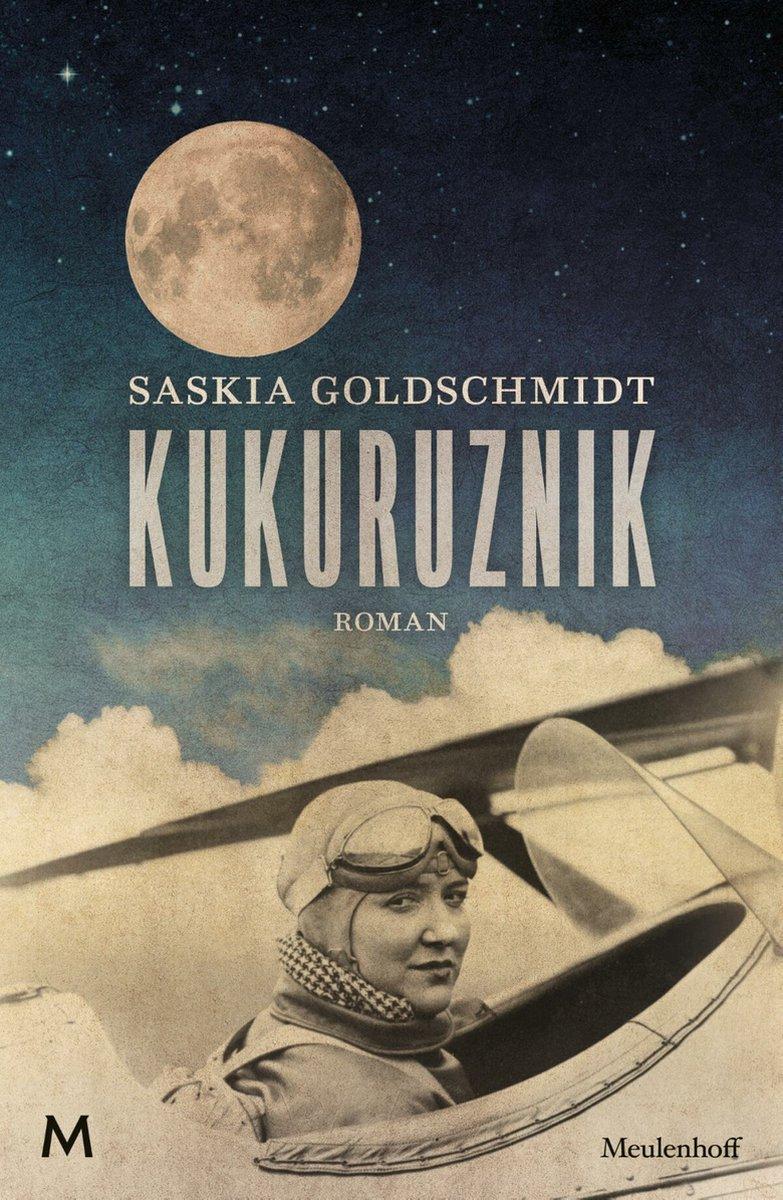Kukuruznik
After the death of her father Boaz, Noa finds a chest full of documents about courageous female aviators and a stack of letters. As she studies this inheritance, she begins to realise that this chest also contains the key to her own past.

Her father’s first letter is addressed to Noa. He writes about his research into female pilots in the interwar period and tells her these documents will reveal something about his own past. Then Noa reads the exciting stories about female aviators all over the world who, in the early days of aviation, got into rickety little planes and tried to break records.
She reads about Rosy Rose, the first Black woman pilot in the US. About Adrienne Bolland, the enfant terrible who only got her pilot’s license so she could pay off a gambling debt, but ended up being the first ever woman to fly over the Andes in a fragile little plane, eight years before Antoine de Saint-Exupéry followed suit. Noa reads about Hanna Reitsch, the Leni Riefenstahl of aviation who, in the final days of the war, was still being sent on missions by the Führer. And she finds letters from Doris, a young woman who faithfully kept writing to her husband after he’d died in a crash. Noa begins to understand why female pilots from the past were so in love with flying: because for a moment their world, in which their fates had been decided for them, would shift — even if it was only for as long as they were up there, suspended above everything.
Noa wonders why her father wrote so much about female pilots and so little about the tragic fate of her own Jewish family. Noa’s parents met after the war and got married, but there was a lack of real connection in their marriage. They were traumatised by the war and they were only able to connect through music. Then, in her father’s last letter, Noa reads that at one point, before the war, he was married to Jente, Doris’ daughter. They had a baby, also called Noa. But when the war broke out Boaz was forced to stay in Europe, and Jente and their little girl died in Chicago. It wasn’t until after the war that Boaz heard this heartbreaking news.
After reading this final letter, everything falls into place: finally Noa understands her parents’ past — and her own.
Kukuruznik is a rich, carefully crafted novel about courage and resilience, about family secrets and survivor’s guilt. And about the art of learning to see in the dark, like the Russian women in the Red Army who learned to fly in Kukuruzniks. By incorporating the stories of all the groundbreaking female pilots, Saskia Goldschmidt finally gives them their rightful place in the history of aviation.
Rights
Sebes & Bisseling
Willem Bisseling
bisseling@sebes.nl
Paul Sebes
sebes@sebes.nl
These are tales of derring-do, chutzpah, determination, resilience, ambition, drive – because these incredible women possessed all of those qualities, “despite” their gender. But their experience as females in the field also means that these are tales of loneliness and roadblocks – because they were up against implicit prejudice and explicit barriers to access. (…) From the inspirational characters to their frustrating experiences with being patronised and excluded to the compelling details of the trials and tribulations they went through – these well-told stories make for highly enjoyable reading.
NRC
.jpg&w=640&q=75)